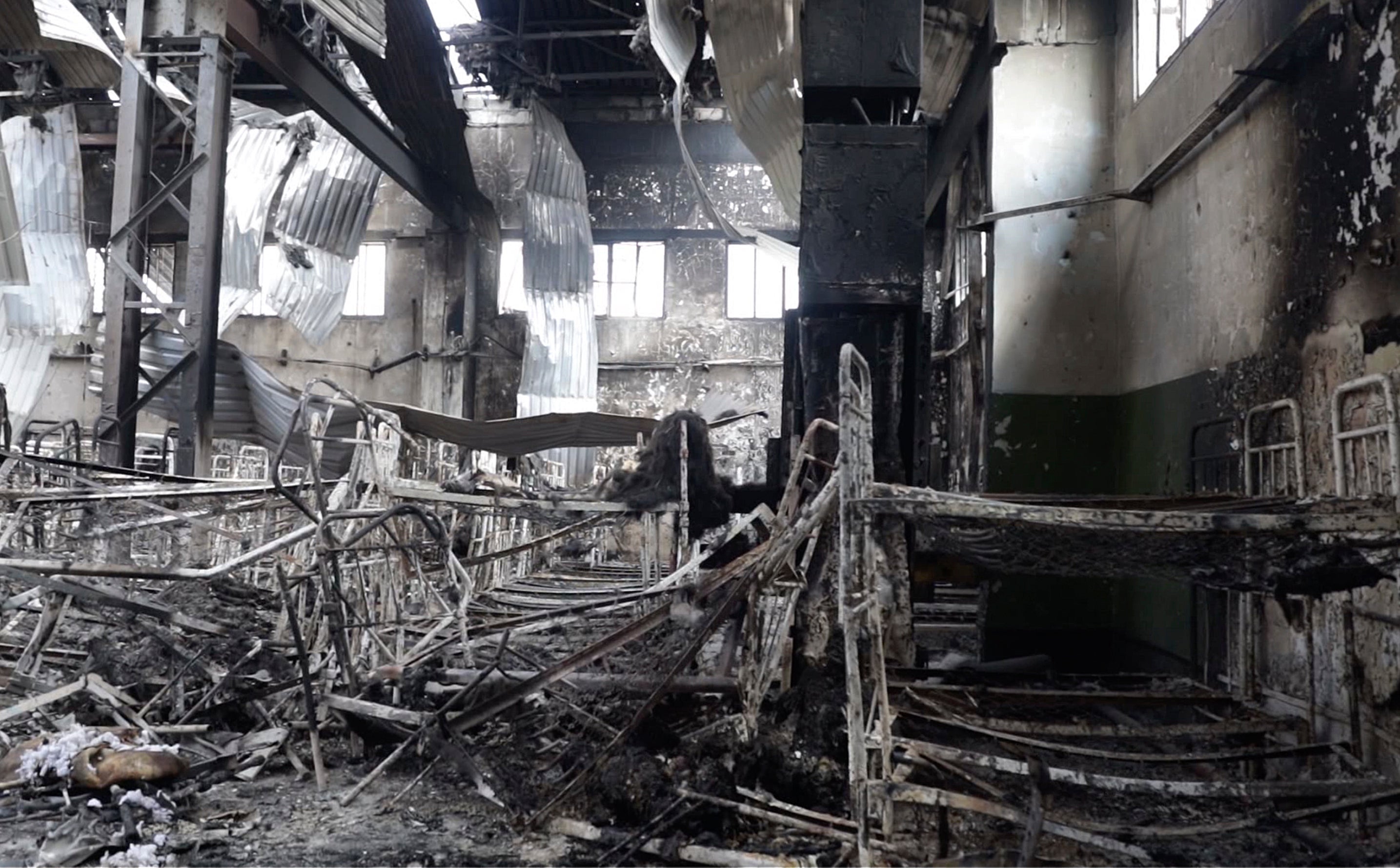UN disbands prison killings probe in Ukraine over security
The United Nations has announced it is disbanding a fact-finding mission requested by Russia and Ukraine to investigate the killings at a prison in eastern Ukraine controlled by Moscow-backed separatists

The United Nations announced Thursday it is disbanding a fact-finding mission requested by Russia and Ukraine to investigate the killings at a prison in eastern Ukraine controlled by Moscow-backed separatists that the warring nations accuse each other of carrying out.
U.N. spokesperson Stephane Dujarric said Secretary-General Antonio Guterres decided to disband the team in the absence of the required security guarantees and the “conditions required for the deployment of the mission to the site.”
Russia claimed that Ukraine’s military used U.S.-supplied rocket launchers to strike the prison in Olenivka, a settlement controlled by the Moscow-backed Donetsk People’s Republic, on July 29. Separatist authorities and Russian officials said the attack killed 53 Ukrainian POWs and wounded another 75.
The Ukrainian military denied making any rocket or artillery strikes in Olenivka. In August, the intelligence arm of the Ukrainian defense ministry said it had evidence that local Kremlin-backed separatists colluded with the Russian FSB, the KGB’s main successor agency, and the Russian mercenary group Wagner to mine the barrack before “using a flammable substance, which led to the rapid spread of fire in the room.”
Dujarric told reporters that there was a “political agreement” by both sides for the fact-finding mission but for such a complex, delicate and dangerous mission in an active war zone “we require clear safety and access guarantees from both sides and we didn’t feel we had received them.”
He refused to say specifically whether the U.N. did get the right access guarantees from the Russians or Ukrainians, stressing that the U.N. has been in contact and trying for the past five months, “and we are pushing very hard.”
“We can only hope that in the future there will be the right conditions and we, of course, stand ready to reconstitute the team … as soon as we feel that we have the proper security guarantees,” Dujarric said.
Secretary-General Guterres thanked retired Brazilian Lt. Gen Carlos Alberto dos Santos Cruz, who had been appointed in late August to lead the fact-finding mission and the other members, Ingibjörg Sólrún Gísladóttir of Iceland and Issoufou Yacouba of Niger, for their readiness to participate.
The Ukrainian POWs at the Donetsk prison included troops captured during the fall of Mariupol. They spent months holed up with civilians at the giant Azovstal steel mill in the southern port city. Their resistance during a relentless Russian bombardment became a symbol of Ukrainian defiance against Russia’s aggression.
More than 2,400 soldiers from the Azov Regiment of the Ukrainian national guard and other military units gave up their fight and surrendered under orders from Ukraine’s military in May.
Scores of Ukrainian soldiers have been taken to prisons in Russian-controlled areas. Some have returned to Ukraine as part of prisoner exchanges with Russia, but other families have no idea whether their loved ones are still alive, or if they will ever come home.
Ukraine’s defense ministry said on Aug. 3 that Ukrainian captives at the prison had been subject to “bullying, physical humiliation, and psychological demoralization” in an attempt to coerce them into starring in pro-Russian propaganda videos.
Secretary-General Guterres reiterated his call for the protection of prisoners of war as required under international humanitarian and human rights law, Dujarric said.
Bookmark popover
Removed from bookmarks